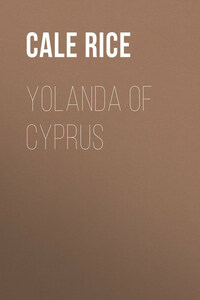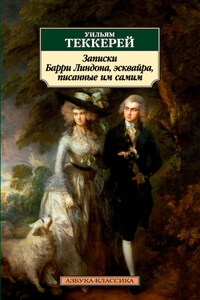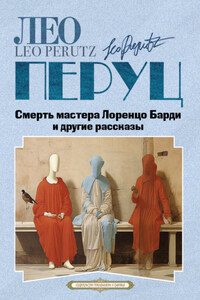YOLANDA OF CYPRUS
Scene: A dim Hall, of blended Gothic and Saracenic styles, in the Lusignan Castle, on the island of Cyprus near Famagouste. Around the walls, above faint frescoes portraying the deliverance of Jerusalem by the Crusaders, runs a frieze inlaid with the coats-of-arms of former Lusignan kings. On the left, and back, is a door hung with heavy damask, and in the wall opposite, another. Farther down on the right a few steps, whose railing supports a Greek vase with jasmine, lead through a chapel to the sleeping apartments. In the rear, on either side, are guled lattice windows, and in the centre an open grated door, looking upon a loggia, and, across the garden below, over the moonlit sea. Seats are placed about, and, forward, a divan with rich Turkish coverings. A table with a lighted cross-shaped candlestick is by the door, left; and a lectern with a book on it, to the front, right. As the curtain rises, the Women, except Civa, lean wearily on the divan, and Halil near is singing dreamily:
Ah, the balm, the balm,
And ah, the blessing
Of the deep fall of night
And of confessing.
Of the sick soul made white
Of all distressing:
Made white!..
Ah, balm of night
And, ah the blessing!
[The music falls and all seem yielding to sleep. Suddenly there are hoof-beats and sounds at the gates below. Halil springs up.
Halil. Alessa! Maga! Voices at the gates!
Some one is come.
Alessa. Boy, Halil, who?
Halil. Up, up!
Perhaps lord Renier – No: I will learn.
[He runs to curtains and looks.
It is Olympio! Olympio!
From Famagouste and lord Amaury!
Mauria. Ah!
And comes he here?
Halil. As he were lord of skies!
To lady Yolanda, by my lute!
Maga. Where is she?
Alessa. I do not know; perhaps, her chamber.
Mauria. Stay:
His word may be of the Saracens.
Halil (calling). Oho!
[He admits Olympio, who enters insolently down. All press round him gaily.
Mauria. Well, what, Olympio, from Famagouste?
What tidings? tell us.
Maga. See, his sword!
Olympio. Stand off.
Mauria. The tidings, then, the tidings!
Olympio. None – for women.
Mauria. So-ho, my Cupid? None of the Saracens?
Of the squadron huddling yesterday for haven
At Keryneia?
Olympio. Who has told you?
Mauria. Who?
A hundred galleys westing up the wind,
Scenting the shore, but timorous as hounds.
A gale – and twenty down!
Maga. The rest are flown?
Olympio. Ask Zeus, or ask, to-morrow, lord Amaury,
Or, if he comes, to-night. To lady Yolanda
I'm sent and not to tattle, silly, here.
[He starts off, but is arrested by laughter within. It is Civa who enters, holding up a parchment.
O! Only Civa.
[Starts again with Halil.
Civa. How, Olympio!
Stay you, and hear! – May never virgin love him!
Gone as a thistle! (turns).
Mauria. Pouf! (laughs).
Alessa (to Civa). Now what have you?
Civa. Verses! found in the garden. Verses! verses!
On papyrus of Paphos. O, to read!
But you, Alessa – !
Alessa (takes them). In the garden?
Civa. By
The fountain cypress, at the marble feet
Of chaste Diana!
Maga. Where Sir Camarin
And oft our lady – !
Civa. Maga, will you prattle?
Read them to us, Alessa, read them, read.
They are of love!
Maga. No, sorrow.
Civa. O, as a nun
You ever sigh for sorrow! – They are of love!
Of princes bursting through enchanted bounds
To ladies prisoned in an ogre's keep!
Then of the bridals! – O, they are of love!
Maga. No, Civa, no! – of sorrow! see, her lips!
[She points to Alessa, who, reading, has paled.
See, see!
Civa. Alessa!
Alessa. Maga – Civa – Ah!
[She rends the parchment.
Mauria. What are you doing?
Alessa. They were writ to her!
Mauria. To her? to whom? what are you saying? Read!
Read us the verses.
Alessa. No.
Mauria. Tell then his name
Who writes them, and to whom.
Alessa. I will not.
Mauria. Then
It is some guilt you hide! – And touching her
You dote on – lady Yolanda!
Alessa. Shame!
Mauria. Some guilt
Of one, then, in this castle! – See, her lips
Betray it is.
Maga. No, Mauria! no! no! (holds her) hush!
Mauria. O, loose me.
Maga. There, on the loggia! Hush, see —
Our lady and Sir Camarin.
Alessa (fearful). It is…
They heard us, Maga?
Maga. No, but —
Mauria (to Alessa). So? that mouse?
Alessa. You know not, Mauria, what thing you say. —
He is troubling her; be still.
[Stepping out as Berengere enters.
My lady?
Berengere (unwillingly). Yes.
It is time, now, for your lamps,
And for your aves and o'erneeded sleep.
But first I'd know if yet lord Renier —
Why are you pale?
Alessa. I?
Berengere. So – and strange.
Alessa. We have
But put away the distaff and the needle.
Berengere. The distaff and the needle – it may be.
And yet you do not seem —
Alessa. My lady – ?
Berengere. Go.
And send me Hassan.
Camarin – you saw?
They were not as their wont is.
Camarin. To your eyes,
My Berengere, that apprehension haunts.
They were as ever. Then be done with fear!
Berengere. I cannot.
Camarin. To the abyss with it. To-night
Is ours – Renier tarries at Famagouste —
Is ours for love and for a long delight!
Berengere. Whose end may be —
Camarin. Dawn and the dewy lark!
And passing of all presage from you.









